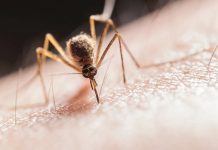Introduction to bile duct cancer
Bile ducts are a combination of thin tubes about 4 to 5 inches that connect the liver, gallbladder, and small intestine. The word bile refers to a liquid that the liver secretes in order to digest the fats in foods that we consume. We all know any type of cancer can occur in any cell and can spread to any part of the body making it a most complicated disease.
Bile duct cancers are rare and in the United States in a year around 8000 people are diagnosed with it. A bile duct cancer occurs in any part of the bile duct. The ducts within the liver are called intrahepatic bile ducts. These intrahepatic bile ducts are responsible for carrying bile inside the liver. There are three types are bile duct cancers. They are:
- Intrahepatic bile duct cancers
- Perihilar bile duct cancers
- Distal bile duct cancers
1. Intrahepatic bile duct cancer
This is a condition where the tumor grows in the bile duct that is inside the liver.
2. Perihilar bile duct cancer
The tumor is developed outside the liver in the hepatic region which forms the common hepatic duct.
3. Distal bile duct cancer
This type of cancer occurs in the region where the liver ducts and the gallbladder ducts combine to form the common bile duct.
Bile duct cancer symptoms and causes
Bile duct cancer is usually caused by liver disease, abnormal bile ducts, long-time inflammation in the bowel or bile ducts, live flukes, bile duct stones, and liver cirrhosis. The symptoms of bile duct cancer vary from person to person and usually, they do not show up in the early stage. Below listed are some of the common bile duct cancer symptoms:
- Jaundice
- Loss of appetite
- Excessive weight loss
- Constant feeling of being unwell
- Very low energy level
- Stomach pain
- Fever and shivery
- Skin that itches
- darker urine and lighter stools
Foods to avoid with bile duct cancer
People who are diagnosed with bile duct cancer and the ones who are undergoing therapy will have to avoid foods that have high fat content such as bacon, sausage, salami, beef, and hot dogs as it may cause abdominal problems. They should also avoid the intake of fast foods, packed or canned foods, and carbonated drinks.
Loss of appetite is a common problem with bile duct cancer. One should eat rich foods in nutrients in order to cope with the treatment. Instead of taking three large meals, eating small portions at medium intervals will help.
Bile duct cancer treatment
The cancer treatment relies on the size and location of the tumor cell. Surgery, chemotherapy, and radiotherapy are all potential therapeutic options.
Can cancer of the bile duct be cured?
If bile duct cancer is curable if the condition is detected at an early stage and the cancer cells have not migrated to other bodily areas. It is advised to speak with a healthcare professional if you are dealing with any symptoms that don’t go away. Hope you found this blog on bile duct cancer to be useful.

















